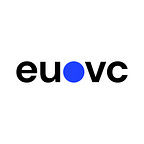This piece is a guest piece written by our good friend Owen Reynolds from Teklas Ventures, the VC arm of a family office associated with Teklas.
Owen is an economist by education and heart, and has worked at a similar regulatory commission as the SEC in the U.S. in the beginning of his career whereafter he made the change into VC first investing in impact in the US and then later joining Expond Capital in Luxembourg to now finally have arrived at Teklas Ventures he invests in automation, robotics, and automotive, as well as broader industry 4.0, energy, and decarbonization.
The U.S. SEC (Securities and Exchange Commission), which regulates the country's financial markets, just changed the game for private equity, hedge fund, private credit, and venture capital funds registered in the U.S.
Yesterday, SEC Chairman Gary Gensler announced the commission Enhances the Regulation of Private Fund Advisers, a set of rules originally proposed in February 2022. And Europe would never be “out-regulated”, so…
Watch our full conversation with Owen below and scroll on to read Owen’s reflections ⏬
Backdrop
Private markets are, by their nature, opaque. Participants in these markets are not (and in most cases cannot) market to the general public. As such, U.S. regulated funds do not have to conform to the SEC’s regulations for most publicly traded companies.
From your local bakery to the (theoretically) billion-dollar companies touted in TechCrunch, none of them are going to share their financials. They often arbitrage that information to beat out competitors.
The general partners (GPs) managing the private funds that invest into these private companies do the same thing — even to their own investors. This next level of investors, the limited partners (LPs), are the big capital allocators like pension funds, sovereign wealth funds, and endowments, as well as family offices and other funds.
In the relentless pursuit of leveraging every informational disequilibrium for their benefit, GPs have created some odd informational gaps.
Owen Reynolds
In the relentless pursuit of leveraging every informational disequilibrium for their (our) benefits, GPs have indeed created some odd informational gaps. This leaves even the biggest capital movers and shakers (LPs) with less insight than you’d think. To the point that sometimes co-investing LP interests are not even necessarily aligned because of some odd trade-offs, unequal (non-pari passu) rights, and a mesh of side letters.
The army of financial and legal professionals safeguarding the industry have cordoned it off from the public. To some degree for good measure.
As this financial enclave’s rites and mores have solidified, so too have the legal docs. As a result, the industry standard for a private market transaction has blossomed to include a series of complex moving parts. Negotiations weigh a “schedule” worth of side letters, preferred treatments, reverse client relationships, and otherwise obscure terms that can mean significant percentages at exit time — in addition to squabbling over share price and vesting timelines.
The Wild West of private investors rhymes with the pre-1929 public markets in the pre-regulation era. Interests range from truly protecting the retail investors from this web of complexities to pure rent seeking. It's this former economist’s worst nightmare.
Almost every GP uses these tools (including this one). It does allow for more nuanced dealmaking, letting both GPs and LPs stack different needs and negotiate to the best of their ability for an efficient outcome. But it ultimately leaves interests in incongruous alignment to say the least.
Over-performing GPs are perhaps best able to play these games. And because they’re over-performing financially, even some of the world’s largest LPs may have to just accept it to keep their allocation. And despite individual efficient outcomes, the macro transaction costs are enormous.
The SEC ruling changes private funds. The commission aims to level the playing field, especially for small(er) investors, and make it more transparent for all. The new rules will require funds to behave more transparently and treat their LP investors with more uniformity. The LP side of me jumps for joy.
There are several different “rules” wrapped up in this “ruling” bundle. It includes individual rules on:
Quarterly Statements
Private Fund Audit
Adviser-led Secondaries
Books & Records
Prohibited Activities
Preferential Treatment
Legacy Status
Compliance
At first blush, the list looks like a no-brainer. Right? Quarterly statements, annual audits, solid records, and full compliance with authorities are a low bar. (Of course, some funds still don’t do even this.) Still, the majority of the industry is pretty unanimous about pushing for these sorts of good governance practices.
However, it’s the limits to advisers, prohibition of some "industry standard" activities, and limitations of preferential treatment listed above that has gotten the industry in an uproar. Republicans reacted to the original proposal by pushing to remove Chairman Gensler and restructure the agency altogether.
The SEC ruling aims to correct for the industry calcifying around these norms, while making what is already considered “best practices” a “must”. But the nuanced parts of the ruling may risk throwing away the baby with the bathwater.
On some of the less obvious rules above, the adviser-led secondaries rule forces funds to use a "valuation opinion". It also requires the fund to disclose relationships with the buyer or seller, and any other material that could impact the value of the sale of those secondaries.
Prohibited activities primarily prohibits funds from charging fees for all manner of operational items unfairly. It also limits "claw-back" clauses from excluding taxes without justification, and select reverse-client lending without other LP approval.
Preferential treatment reads as if designed to curb the practice of side letters. The summary concisely states, that the ruling will "prohibit all private fund advisers from providing preferential terms to investors regarding [redemptions and information rights]"… "if the adviser reasonably expects that providing the information would have a material, negative effect on other investors".
A lot of that will be picked apart by lawyers much savvier than this writer for years to come. But what most investors used to say was "let's just put it into a side letter", and now that practice comes with a raft of other risks.
Legacy status just helps "grandfather" in funds currently being raised". And the compliance rule requires all funds, big and small, to write an annual compliance report.
What would the SEC’s Private Fund ruling mean to the tech ecosystem?
The majority of the ruling aims at providing transparency on performance. As both a GP and LP (at a family office with a dual mandate), transparency is again, a no-brainer. Market participants want to partner with people and firms who are willing to speak openly and open their books — perhaps not to the public, but to investors and potential investors.
Changing the unique GP-LP norms that have been built up over the years could have a range of consequences. Some of the following levers are likely to be pulled to one degree or another:
Power Shift to LPs: This seems obvious as information is power. The balance of power over the next cycle on pricing and decision-making would lean in the favour of LPs. That does some limited good for pensioners and sovereign wealth funds who are already (perhaps the most) sophisticated actors. But it will also increase the inclusion of and returns to (often) semi-sophisticated high-net-worth-individuals who can now more-easily compare across plain vanilla rules.
Decreased GP Democratization: Without tranches for fund size, the bar will be raised for new GPs to raise capital — which could mean fewer, more concentrated GPs. Emerging GPs used to be able to make promises, concessions, etc. (no matter how painful) via side letters to raise their first fund or two. LPs could make these otherwise “on-the-fence” transactions feasible by getting extra security or negotiating for what really matters to them and forgoing what does not. These new rules limit the very flexibility the private capital markets are known for, making new firms less likely to emerge — and a pain in the @$$ for emerging GPs.
Increased Economic Efficiency: Once the terms and rules are more standardised, one would expect the time and complexity of transactions to be lower. This would drive down the expenses of running a fund, and is designed to trickle down to LPs.
Entrepreneurial Calculus: More concentrated GPs and power shifting towards LPs could increase the pressure on and the power concentrated into GPs. In turn, GPs may extract returns any way possible, perhaps even at the growing expense of entrepreneurs.
Regulatory Expansion: Side letters are rife in GPs’ individual investments into companies and projects, leading to similar market dynamics. You can bet that once regulators get a taste for “fixing” this problems, they probably won’t stop there (re: If You Give a Mouse a Cookie). Future rules could even implement the same rules on investments in underlying portfolio companies.
This former economist loves the prospect of increased economic efficiency and lower transaction costs. Music to my ears. Though if you’re a reader of Picketty, you’ll recognise that r > g (rate of return to capital is greater than growth, i.e, returns to labor) implies that perfectly efficient long-term macro markets may not benefit the greater good.
More practically, as a former full time GP (and now on both sides of the table), I am worried about the higher bar to creating new organisations and the consequent concentration of GP capital.
To be clear, the SEC’s job is investor protection. Their website summarises the commission's 80+ years of accumulated regulatory oversight as:
Since our founding in 1934 at the height of the Great Depression, we have stayed true to our mission of protecting investors, maintaining fair, orderly and efficient markets, and facilitating capital formation
In that context, the commission's push for market efficiency, increased information, and a “level playing field” for LPs is no surprise.
They would have been asleep at the wheel if they didn’t push for more standardisation in the blossoming private capital industry filling the gap left behind the increasingly concentrated public markets. And the mission of facilitating capital formation could be measured by funds raised as easily as number of funds raised. This writer would wager the former.
The ruling is also consistent with a separate May 2023 ruling aiming to strengthen reporting at the largest private investment firms.
However, this level playing field could allow more concentrated capital to easily reach GPs while at the same time making GP creation harder. This opens the risk to increased capital accumulation while taking away one of the ladders towards capital distribution available to up-and-coming talent.
For investment companies (PE- and VC-backed companies are easiest to identify), it may also make the outcomes more binary. If GP capital is more concentrated and the nucleus of power shifts to LPs, bigger GPs will both be able to and be incentivised to exert more power on the majority of their portfolio companies at exit relative to today.
The most successful companies will remain untouchable. But the range of middling outcomes may become less attractive to entrepreneurs. This could change the calculus of "should I start a company or go into banking/consulting/corporate finance?"
In effect, the SEC risks helping investors while stagnating innovation and social mobility — maybe even changing the risk balance of entrepreneurship.
Before you yell "libertarian" for this concern: when an economist, this writer was at the U.S. Federal Energy Regulatory Commission, writing regulation. Regulators grapple with both power and limitations.
U.S. regulators are hamstrung by mandates that can be agnostic to, or even get in the way of the public good. Look at this clip from recent documentary, Poisoned: The Dirty Truth About Your Food, where top US food regulators debate (or neglect to debate) their mandate vs. what’s best for the consumer.
And don’t get confused, the majority of the things in this SEC ruling are, in fact, no brainers. No honest GP managing anything more than the most micro- of micro-funds could argue that they shouldn’t be reporting quarterly financials and audited accounts to their LPs. And negotiating dozens of terms until the day the money is wired is efficient in the macro sense. But it gets deals done and helps GPs raise funds — and the same goes for underlying portfolio companies.
What would this mean for Europe?
For the moment, very little.
However, the U.S. looms large over the daily operations and market movements of European private (and public) capital markets.
But European regulators do not easily let themselves be “out-regulated”. And as providers of follow-on and public capital for many of Europe’s star tech firms in particular, U.S. investors and new rules they rely on may effect broader compliance even without regulation.
The same increased reporting, compliance, and term trends are likely to come to European shores in some form, as well. Applause for the drive towards better reporting and compliance, but beware of the fine print.
I hope that I’m wrong, that the SEC knows exactly what they’re doing, and that they are aligned with the global optimum of the public good. I’m also hoping that the risks pointed out here are far outshined by the power to pensioners, endowments, and true retail access to private market growth.
But I would encourage European regulators to take pause before doing a copy-and-paste of all of the SEC’s new rules. The mandate those rules cater to provide a unique context that may not easily translate.












